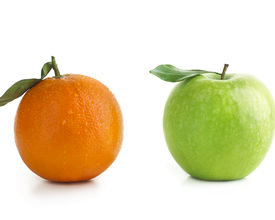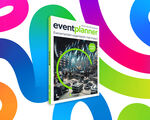Just like running a software business for the health insurance industry is completely different from building a media startup for millennials, planning B2B (business-to-business) events is nothing like organizing B2C (business-to-customer) events.
With B2B events, you’re setting up conferences, networking sessions, or seminars to get business representatives to interact with each other and gain access to updated industry insights. B2C events, on the other hand, are designed to enchant the customers or future clients of a brand, for example.
That being said, both the approach and the event management protocol vary for these events. In the case of B2B dynamics, you’ll be running events for a company that is targeting other businesses, or a dynamic that involves gathering multiple brands in the same place.
You’ll host professionals and decision-makers who, depending on their goals, want to make a purchase or a business interaction based on logical arguments, financial scrutiny, and data. They have a job to do, a clear purpose that dictates their willingness to attend the event. When planning B2B events, you might feel a greater responsibility to secure the right environment and circumstances that will get businesses to another level.
B2C events, conversely, are focused on building strong relationships between a brand and its leads and audiences. In this case, the approach can be less logical and more emotional, since these purchases are based more on benefits than on features.
That being said, let’s tackle the main differences between these two types of events.
Difference #1. Customers or brands? Know your attendees
The first obvious difference is the type of attendees you’ll have. With B2B events, you’ll be dealing with entrepreneurs, different brand representatives, and executives with business-oriented goals. In the case of B2C events, you’ll be designing experiences for a homogenous audience to appeal to their consumer mindset.
Difference #2. Types of B2B and B2C dynamics
There are different event categories for different purposes and types of audiences. For B2B dynamics, you may want to run business partner events, VIP breakfasts, multiple-day conferences, award ceremonies, lectures, cocktail parties, executive retreats, etc.
In the case of B2C dynamics, you can plan product trainings, one-day conferences, seminars, road shows (which also work for B2B events), community meetups, or in-store events.
Difference #3. Relationships versus activities
Although people who attend B2B events are interested in gaining valuable insights and new industry data, they’re more focused on connecting with prospects or building constructive business relationships with other guests.
B2C attendees, on the other hand, might want to interact with others (and the brand that is running the event), but their main interest is to participate in the event experiences you’ve set up for them.
Difference #4. Customized brand experiences
The type of event can also dictate the brand experience you’ll want to provide. When planning brand experiences for a B2B event, think about your attendees’ ultimate goals and mix the emotional aspect with a certain value indicator. Opt for more luxurious elements and experiences your guests can’t have anywhere else, such as think tanks with industry leaders or trying products that aren’t on the market yet.
When running a B2C event, the main focus should be designing a brand experience that connects with your attendees’ emotional state or provides them with the expected gratification. Here you can include virtual reality dynamics, customized social programs, guided tours, etc.
Difference #5. Entertainment-oriented or business-based narrative
Last but not least are the different narratives you’ll construct for B2B and B2C events. In the case of a B2B event, even if you incorporate something fun and lighthearted (like a performance act), you’ll want to make sure your guests don’t lose their professional focus.
With B2C events, you’ll want to build an entertaining core or storytelling component, such as a show, that will appeal to your attendees’ intention to purchase the product or service.
Final thoughts
It’s unfair to compare B2B and B2C events, because one isn’t better than the other. Each has its own characteristics and purposes. What you can achieve by planning a B2C event, you can’t achieve through running a B2B event and vice versa. However, considering these differences, it’s crucial to keep in mind the approach you want to take, your audience, and the ultimate goals you want to achieve.









Pretty great post. I just stumbled upon your blog and wanted to mention that I have truly enjoyed surfing around your blog posts. After all, I’ll be subscribing to your feed and I’m hoping you write once more soon!